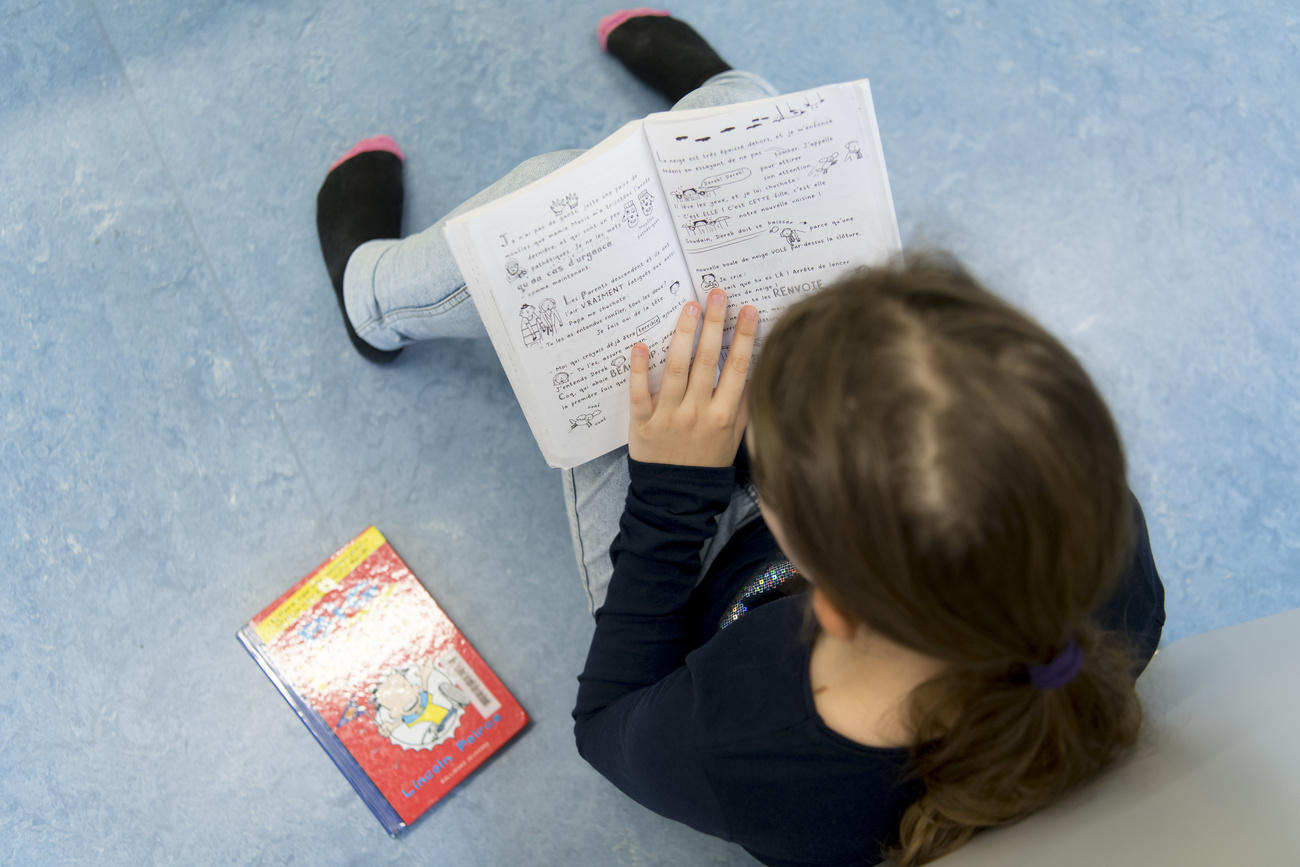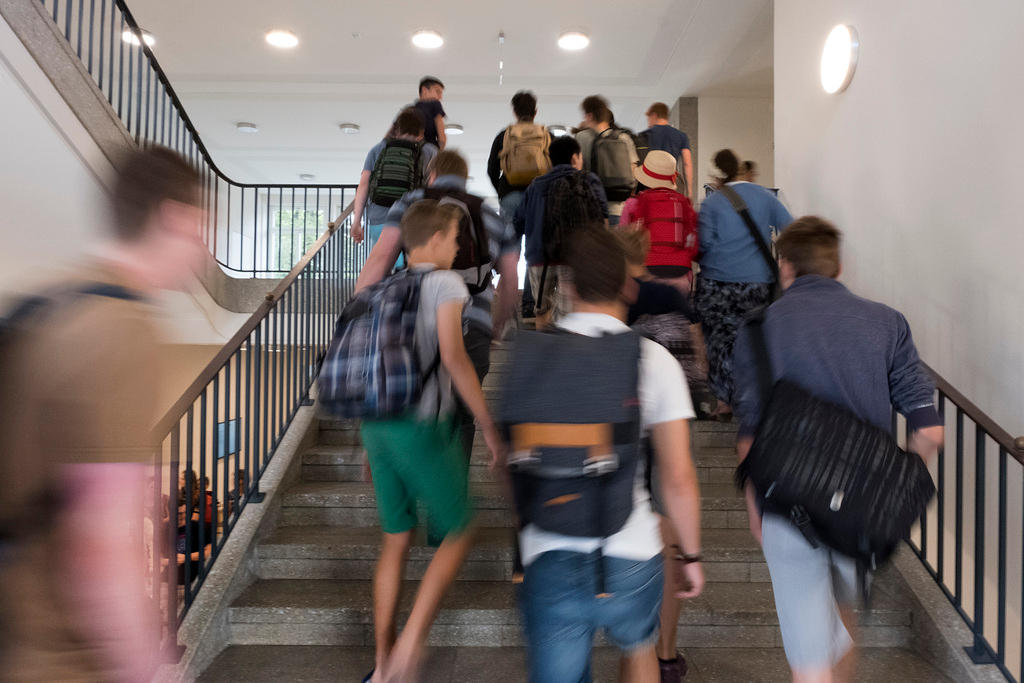
PISA study finds Swiss students ‘still behind’ on reading

Swiss 15-year-olds are below average internationally when it comes to reading, the latest PISA education survey reveals. Swiss education officials say more needs to be done to improve the “less-than-satisfactory” situation.
The 2018 PISA surveyExternal link from the Organisation for Economic Co-operation and Development (OECDExternal link), published on Tuesday, found that students in Switzerland “scored not significantly differently” from the OECD average in reading. At 484 points, it was below the mean of 487 points – and there was a drop of eight points on the last test in 2015.
+ How the Swiss did in the 2015 PISA survey
As the only international survey of pupil performance, the PISA test is used by many countries as a tool of comparison in education. Each time it has a different focus subject; this time, it was reading.
According to the OECD’s country notes for Switzerland, 76% of Swiss students attained at least Level 2External link (considered the baseline) proficiency in reading (average OECD: 77%). Some 8% of students were top performers at Levels 5 or 6. By comparison, in 20 other education systems, of which 15 were OECD countries, more than 10% of pupils were top performers.
Estonia, Canada, Finland and Ireland were the highest-performing OECD countries in reading. Singapore and parts of China also scored highly.
As in previous PISA surveys, Swiss students did do well in maths and science, where the results were higher than average. Only Estonia did better than Switzerland in maths.
The 2018 study tested around 600,000 students aged around 15 in 79 countries and economiesExternal link, of which around 6,000 (from 200 schools) were from Switzerland. Most students did the test on computers.
Reading: a long-term issue
Reading has been a long-term issue in Swiss PISA tests. There was shock in the country when the first PISA study came out in 2000, as it revealed that 20% of students could only read simple texts.
In the 2018 study, 24% of pupils were found to have problems with simple texts, a rise of 4%. In many countries, including Switzerland, reading enjoyment had also fallen among pupils.
‘Need for action’
The Federation of Swiss Teachers (LCH) welcomed the good results in maths and science but said that the results for reading were “less than satisfactory”.
“There is a need for action in reading literacy, early years education, the use of digital technologies in the school as well as support for gifted pupils,” it said in a statementExternal link.
The OECD said that one explanation for the lower reading performance could be that the proportion of 15-year-old students in Switzerland with an immigrant background had increased by 10 percentage points over the past decade, “one of the largest increases amongst OECD countries”. In 2009 (the last time reading was a focus) as well as in 2018, immigrant students in Switzerland scored about 50 points below non-immigrant students in reading, it said.
The LCH said that the results in many countries, such as Canada, Estonia, Ireland and Australia, showed that “disadvantaged young people could attain above-OECD-average reading skills with enough support”.
“Language learning should start at an early age, ideally before entering Kindergarten. Switzerland should better subsidy for early childhood education centers, with a focus on language learning. Also, public schools need conditions that support language learning, such as small class sizes and special teachers for learning second languages,” the organisation’s Beat Schwendimann told swissinfo.ch in written comments.
Computer test – a problem?
The State Secretariat for Education, Research and Innovation and the Swiss Conference of Cantonal Ministers of Education (EDK) released a joint statementExternal link in which they acknowledged the 2018 results.
It mentioned how the PISA test had changed in 2015 from a paper-based to a computer-based one – which Swiss education officials were unhappy about at the time – and pointed out that as such, only the results from 2015 and 2018 could be compared rather than earlier ones.
The 2018 test had used interactive tasks in a simulated web environment which was “strongly focused on reading in a digital context”, it pointed out.
This test also adapted to the pupil’s academic level during the test, offering easier questions if he or she struggled at the beginning and more difficult ones if he or she did well.
Some education experts have already questioned whether this method can really be compared with earlier ones. However, PISA boss Andreas Schleicher has counteredExternal link that the change has been factored in. The organisation also says that electronic formats have become more commonExternal link test taking formats, including for reading.
Switzerland says the results of the PISA survey are nevertheless important for education monitoring. It has already confirmed participationExternal link in the 2021 report.

More
Foreigners suffer disadvantage in school career

In compliance with the JTI standards
More: SWI swissinfo.ch certified by the Journalism Trust Initiative






























You can find an overview of ongoing debates with our journalists here . Please join us!
If you want to start a conversation about a topic raised in this article or want to report factual errors, email us at english@swissinfo.ch.